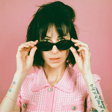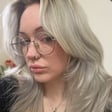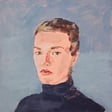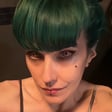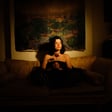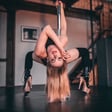
Vanessa Stockard
Vanessa Stockard is an Australian painter. I had the great pleasure of speaking with her about:
Cats borne of heaven and hell
Painting
Her time in Oregon, USA
Becoming a Mum
Something
Nothing.
Her paintings, generously displayed on instagram, will steal your heart. When I see her paintings, I instantly feel like I am living and laughing and loving. Make sure you take the time to experience them. Your life will improve.
{Prior to interviewing her I suspected that she was part Trafalmadorian, one of those beings that inhabit Kurt Vonnegut's Trafalmador. Trafalmadorians are beings who exist in all times simultaneously, and are thus privy to knowledge of future events, including the destruction of the universe. I did not ask her about this as my independent research failed to yield any proof. However, I will ask her directly next time . . . }












